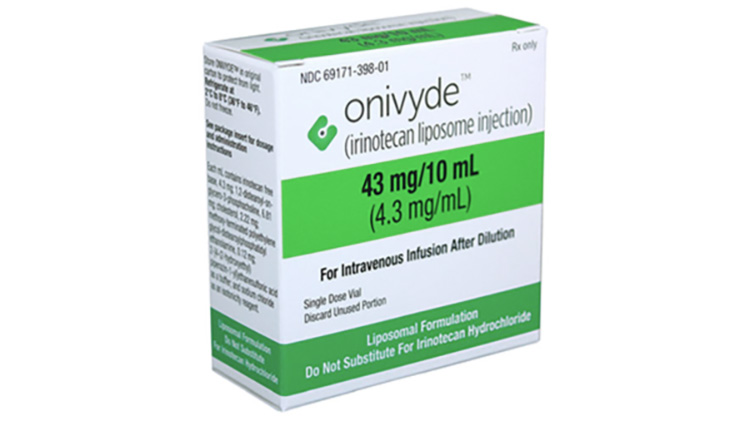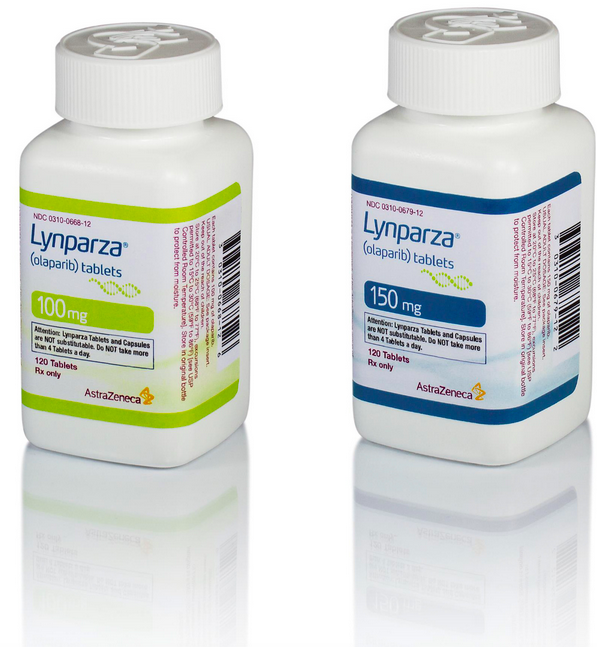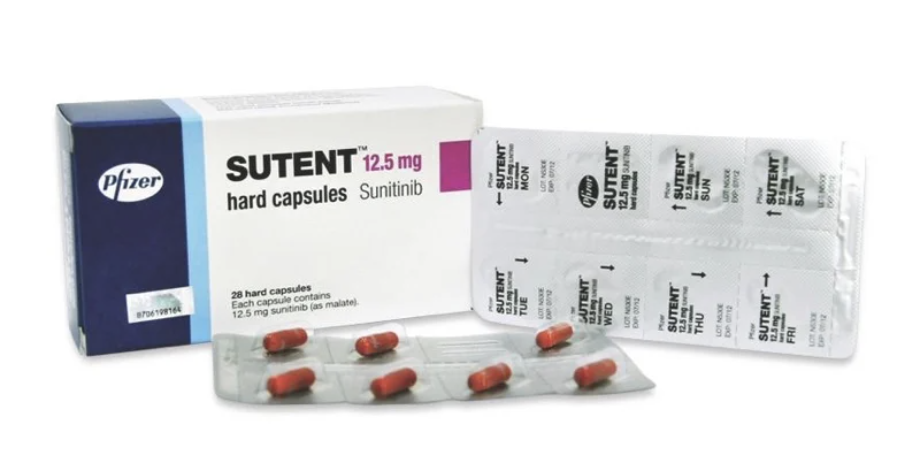New Pancreatic Cancer treatments 2024
New Pancreatic Cancer Treatments 2024
Pancreatic cancer is a type of cancer that begins in the tissues of the pancreas, an organ in the abdomen that lies behind the lower part of the stomach. The pancreas plays an essential role in digestion by producing enzymes that help break down foods and hormones such as insulin to regulate blood sugar. Pancreatic cancer is often diagnosed at a late stage because it rarely causes symptoms in its early stages, which makes it more difficult to treat. Symptoms that may appear as the disease progresses include jaundice, weight loss, abdominal pain, and loss of appetite. Due to its aggressive nature and late diagnosis, pancreatic cancer has one of the lowest survival rates among all cancer types.
When considering treatment options for pancreatic cancer, it is crucial to consult with a healthcare professional who can provide personalized advice based on the stage of the cancer, the patient's overall health, and other individual factors. Surgery, chemotherapy, radiation therapy, and targeted therapy are common treatments for pancreatic cancer. In some cases, newer medications or off-label use of existing drugs may be suggested as part of a treatment plan, particularly in advanced stages or when standard treatments are not suitable. Clinical trials can also be an option for patients seeking access to cutting-edge treatments that are not yet widely available. The choice of medicine or combination of treatments depends on the specific characteristics of the pancreatic cancer and the goal of treatment, whether it is to cure the cancer, control its growth, or relieve symptoms.

Treatment options
| Treatment option | Estimated cost | Efficacy | Eligibility |
|---|---|---|---|
| Surgery (Whipple procedure) | $30,000 - $50,000 | Can be curative for early-stage | Localized pancreatic cancer, no metastasis |
| Chemotherapy (FOLFIRINOX) | $7,000 - $12,000/month | Increases median survival | Advanced or metastatic pancreatic cancer |
| Radiation Therapy | $10,000 - $30,000 (total) | Palliative, may increase survival when combined with chemotherapy | Localized disease, post-surgery, or for palliation |
| Targeted Therapy (Erlotinib) | $2,000 - $4,000/month | May improve survival slightly when added to chemotherapy | Advanced pancreatic cancer with specific genetic mutations |
| Immunotherapy (Pembrolizumab for MSI-H/dMMR cancers) | $10,000 - $12,000/month | Effective in a small subset of patients | MSI-H or dMMR metastatic pancreatic cancer |
| Onivyde (liposomal irinotecan) | $6,000 - $8,000/month | Improves survival in metastatic pancreatic cancer after gemcitabine failure | Metastatic pancreatic cancer post-gemcitabine treatment |
| Lynparza (Olaparib) | $13,000 - $15,000/month | Increases progression-free survival in BRCA-mutated pancreatic cancer | gBRCA1/2 mutations, maintenance therapy after platinum-based chemotherapy |
| Pancreatic Enzyme Replacement Therapy | $200 - $800/month | Improves nutrition and quality of life | Exocrine pancreatic insufficiency due to pancreatic cancer or surgery |
| Experimental Treatments (Clinical Trials) | Varies, often free | Varies, under investigation | Varies, typically for patients who have exhausted other options |
Treatments options in detail
Standard Treatments for Pancreatic Cancer
Surgery is often the first line of treatment for pancreatic cancer, particularly if the cancer is localized and appears to be removable. Procedures such as the Whipple procedure (pancreaticoduodenectomy), distal pancreatectomy, or total pancreatectomy are performed depending on the location and extent of the cancer within the pancreas.
Following surgery or in cases where surgery is not an option, chemotherapy is a common treatment for pancreatic cancer. Drugs like gemcitabine, 5-fluorouracil (5-FU), capecitabine, and nab-paclitaxel are typically used. These drugs can be used alone or in combination to help shrink tumors and control symptoms.
Radiation therapy, often in combination with chemotherapy, is another conventional treatment for pancreatic cancer. This approach uses high-energy rays to target and destroy cancer cells. For localized pancreatic cancer, stereotactic body radiotherapy (SBRT) might be used to deliver high doses of radiation to the tumor while minimizing exposure to surrounding healthy tissue.
Targeted therapy is a treatment that uses drugs or other substances to identify and attack specific cancer cells without harming normal cells. Erlotinib, in combination with gemcitabine, is one example of targeted therapy used for pancreatic cancer.
Immunotherapy, which uses the body’s immune system to fight cancer, has shown promise in treating some types of cancers but is not yet a standard treatment for pancreatic cancer. However, clinical trials are ongoing to evaluate the effectiveness of various immunotherapy agents in this disease.
Onivyde for Pancreatic Cancer
Onivyde (irinotecan liposome injection) is approved by the FDA for use in combination with fluorouracil and leucovorin for patients with metastatic pancreatic cancer who have been previously treated with gemcitabine-based chemotherapy. This medication is a form of chemotherapy that targets cancer cells more specifically and with fewer side effects than traditional irinotecan.
Lynparza for Pancreatic Cancer
Lynparza (olaparib) is a PARP inhibitor approved by the FDA for the maintenance treatment of adults with germline BRCA-mutated metastatic pancreatic cancer, whose disease has not progressed after at least 16 weeks of a first-line platinum-based chemotherapy regimen. This approval is contingent on the presence of a specific genetic mutation, and patients must be tested for eligibility.
Experimental Treatments and Treatments Not Approved by the FDA
Clinical trials are an essential part of the development of new treatments for pancreatic cancer. These trials test new drugs, new combinations of standard treatments, or new approaches to surgery or radiation therapy. Experimental treatments include new chemotherapy agents, targeted therapies, and immunotherapies that have not yet been approved by the FDA.
One area of research is the development of stroma-targeting therapies. The stroma is the supportive tissue around cancer cells, which in pancreatic cancer, can create a barrier to the delivery of chemotherapy drugs. Researchers are looking at ways to disrupt this barrier to make the cancer cells more vulnerable to treatments.
Another area of research involves the use of vaccines to stimulate the immune system to attack pancreatic cancer cells. These therapeutic vaccines are different from the vaccines used to prevent diseases; they are designed to treat existing cancer.
Chimeric Antigen Receptor (CAR) T-cell therapy is a type of treatment in which a patient’s T cells (a type of immune system cell) are changed in the laboratory so they will attack cancer cells. CAR T-cell therapies have shown success in some types of blood cancers and are now being studied for use in solid tumors, including pancreatic cancer.
Additionally, researchers are investigating the role of metabolic inhibitors in treating pancreatic cancer. These inhibitors target the unique metabolic requirements of cancer cells, aiming to starve them of the nutrients they need to grow.
Off-label use of medications, which means using an FDA-approved drug for an unapproved indication, is sometimes considered in the treatment of pancreatic cancer. This practice is based on emerging research that suggests a drug's effectiveness against pancreatic cancer, even if it is not specifically approved for that purpose. However, off-label drug use should only be done under the guidance of a qualified healthcare professional and often within the context of a clinical trial.
Finally, personalized medicine, which tailors treatment to the individual characteristics of each patient's cancer, is an emerging field. This approach often involves genetic testing of the tumor to identify specific mutations and select treatments that are most likely to be effective for that particular cancer.
Patients with pancreatic cancer are encouraged to discuss all treatment options, including the potential for participation in clinical trials, with their healthcare team. An individualized approach to treatment, considering the specific details of the patient's condition, is critical for the best possible outcome.
Symptoms
Symptoms of Pancreatic Cancer
Pancreatic cancer often goes undetected until it's advanced and difficult to treat. In the early stages, the disease may cause no symptoms or symptoms that are often vague and easily confused with other less serious conditions. As the disease progresses, symptoms become more pronounced and severe.
Jaundice
One of the most common symptoms of pancreatic cancer is jaundice, which is characterized by yellowing of the skin and the whites of the eyes. Jaundice occurs when the cancer blocks the bile duct, causing a buildup of bilirubin in the body. Other related symptoms may include dark urine, light-colored or greasy stools, and itchy skin.
Abdominal and Back Pain
Abdominal pain is another frequent symptom. The pain often begins in the upper abdomen and may radiate to the back as the cancer grows and presses on surrounding organs and nerves. This pain may become more intense after eating or when lying down.
Weight Loss and Poor Appetite
Unintended weight loss and loss of appetite are common in individuals with pancreatic cancer. These symptoms can result from a decreased ability to digest food due to the cancer affecting the pancreas's enzyme-producing functions.
Digestive Problems
As the pancreas plays a vital role in digestion, pancreatic cancer can lead to digestive issues. Patients may experience nausea, vomiting, and indigestion. Changes in bowel movements, such as diarrhea or constipation, can also occur.
New-Onset Diabetes
Some patients with pancreatic cancer develop diabetes as the disease can affect the pancreas's ability to produce insulin. This may manifest as increased thirst and urination, fatigue, and blurred vision.
Enlarged Gallbladder or Liver
Physical examination may reveal an enlarged gallbladder or liver, especially if the cancer has blocked the bile duct. This can sometimes be felt as a mass under the right side of the ribcage.
Malaise and Fatigue
General malaise and fatigue are nonspecific symptoms that can be associated with many conditions, including pancreatic cancer. Patients may feel unusually tired or have a reduced ability to perform daily activities.
Blood Clots
Pancreatic cancer can increase the risk of blood clot formation, which may present as a deep vein thrombosis (DVT) with symptoms such as swelling, redness, and pain in a leg. Sometimes, a piece of the clot can break off and travel to the lungs, causing a pulmonary embolism, which can be life-threatening.
Ascites
Ascites, the accumulation of fluid in the abdomen, can develop in advanced stages of pancreatic cancer. This condition may cause abdominal swelling and discomfort.
Depression
Depression is commonly reported in patients with pancreatic cancer. The reasons for this are not entirely understood but may relate to the cancer's impact on the body and the psychological stress of the diagnosis.
It is important to note that many of these symptoms can be caused by conditions other than pancreatic cancer. If any of these symptoms are persistent or concerning, it is essential to consult a healthcare provider for a thorough evaluation.
Cure
Potential for Cure in Early-Stage Pancreatic Cancer
Pancreatic cancer, particularly in its early stages, can sometimes be cured. The most effective curative treatment is surgical resection, which involves the removal of the cancerous part of the pancreas. This is typically an option when the cancer is localized and has not spread to other parts of the body. The Whipple procedure (pancreaticoduodenectomy) is the most common surgery for cancers located in the head of the pancreas, while a distal pancreatectomy may be used for cancers in the body and tail of the pancreas.
Challenges in Achieving a Cure
Achieving a cure for pancreatic cancer is challenging due to the disease's typically late presentation. Symptoms often do not appear until the cancer is advanced and has spread to other organs, making surgical resection less feasible. Even when surgery is possible, there is a risk of recurrence, and thus surgery is often followed by adjuvant chemotherapy to eliminate any remaining cancer cells.
Adjuvant and Neoadjuvant Therapies
Adjuvant therapies, such as chemotherapy and radiation therapy, are used after surgery to reduce the risk of cancer recurrence. Neoadjuvant therapies, which are treatments given before surgery, may be used to shrink tumors to a size that can be surgically removed or to treat cancers that are borderline resectable. These treatments can increase the chances of a cure in some patients.
Advancements in Treatment Options
Recent advancements in treatment options, including targeted therapies and immunotherapies, have provided new avenues for treating pancreatic cancer. These treatments may be used in combination with traditional chemotherapy and radiation therapy. Targeted therapies are designed to attack specific cancer cells without affecting normal cells, while immunotherapies aim to boost the body's immune system to fight cancer. However, these treatments are not typically curative when used alone and are often part of a broader treatment strategy.
Importance of Clinical Trials
Clinical trials play a crucial role in advancing the treatment of pancreatic cancer. They offer patients access to new therapies that are not yet widely available. Participation in clinical trials can provide additional options for patients, especially those with advanced disease, and can contribute to the development of more effective treatments that may lead to a cure in the future.
Palliative Care and Quality of Life
For patients with advanced pancreatic cancer, where a cure is not possible, the focus of treatment shifts to palliative care. The goal of palliative care is to relieve symptoms and improve the quality of life. This can include managing pain, addressing digestive issues, and providing nutritional support. Palliative care can be provided alongside other cancer treatments or as the main approach when those treatments are no longer effective.
Role of Personalized Medicine
Personalized medicine is an emerging approach that tailors treatment to the individual characteristics of each patient and their tumor. By analyzing the genetic makeup of the cancer, doctors can identify specific mutations and choose treatments that are more likely to be effective. This precision approach can improve the chances of achieving a cure in some patients, particularly those with certain genetic mutations that respond well to targeted therapies.
Survival Rates and Prognosis
Survival rates for pancreatic cancer are generally low, but they have been slowly improving due to better detection methods and treatment advances. The five-year survival rate for all stages combined is around 10%, but this rate is significantly higher for localized disease where the cancer is confined to the pancreas. The prognosis for a cure is best when the cancer is detected early and treated aggressively with a combination of surgery, chemotherapy, and radiation therapy.
Lifestyle Factors and Supportive Care
Lifestyle factors, such as maintaining a healthy diet, regular exercise, and avoiding tobacco, can play a role in supporting treatment and recovery. Additionally, supportive care services, including psychological support and social services, are important for patients and their families to help cope with the emotional and practical challenges of the disease.
Conclusion on Cure Possibility
In conclusion, while there is no guaranteed cure for pancreatic cancer, there is potential for a cure, especially in cases where the disease is detected early and has not spread beyond the pancreas. A combination of surgery, chemotherapy, radiation therapy, and newer treatments like targeted therapies and immunotherapies can increase the likelihood of a cure in some patients. However, the overall prognosis remains poor, and ongoing research and clinical trials are critical for improving outcomes and developing more effective treatments.
Access Pancreatic Cancer medicines today
If Pancreatic Cancer medicines are not approved or available in your country (e.g. due to supply issues), you can access them via Everyone.org.
How Everyone.org works

Make an enquiry
Choose the medicine you want to access, answer a couple of questions, and upload your prescription to speed things up. We’ll get back to you within 24 hours.


Make an enquiry
Choose the medicine you want to access, answer a couple of questions, and upload your prescription to speed things up. We’ll get back to you within 24 hours.


Breeze through the paperwork
We'll guide you through the required documents for importing unapproved medicine, ensuring you have all the necessary information.


Get a personalized quote
We’ll prepare a quote for you, including medicine costs and any shipping, administrative, or import fees that may apply.


Receive your medicine
Accept the quote and we’ll handle the rest - sourcing and safely delivering your medicine.

Some text on this page has been automatically generated. Speak to your physician before you start a new treatment or medication.
Let's talk
If you have any questions, call us or send us a message through WhatsApp or email:
Contact us





